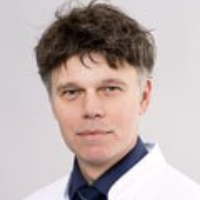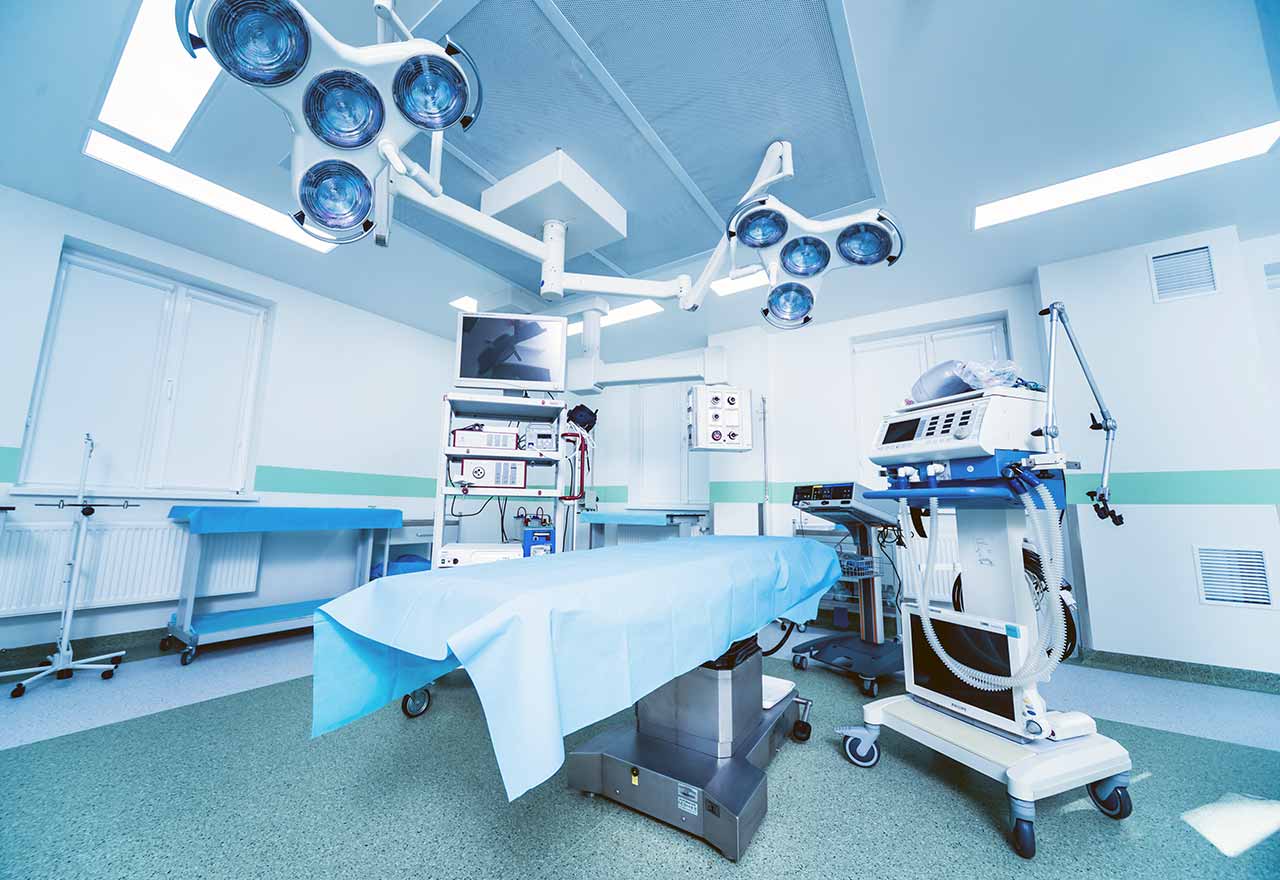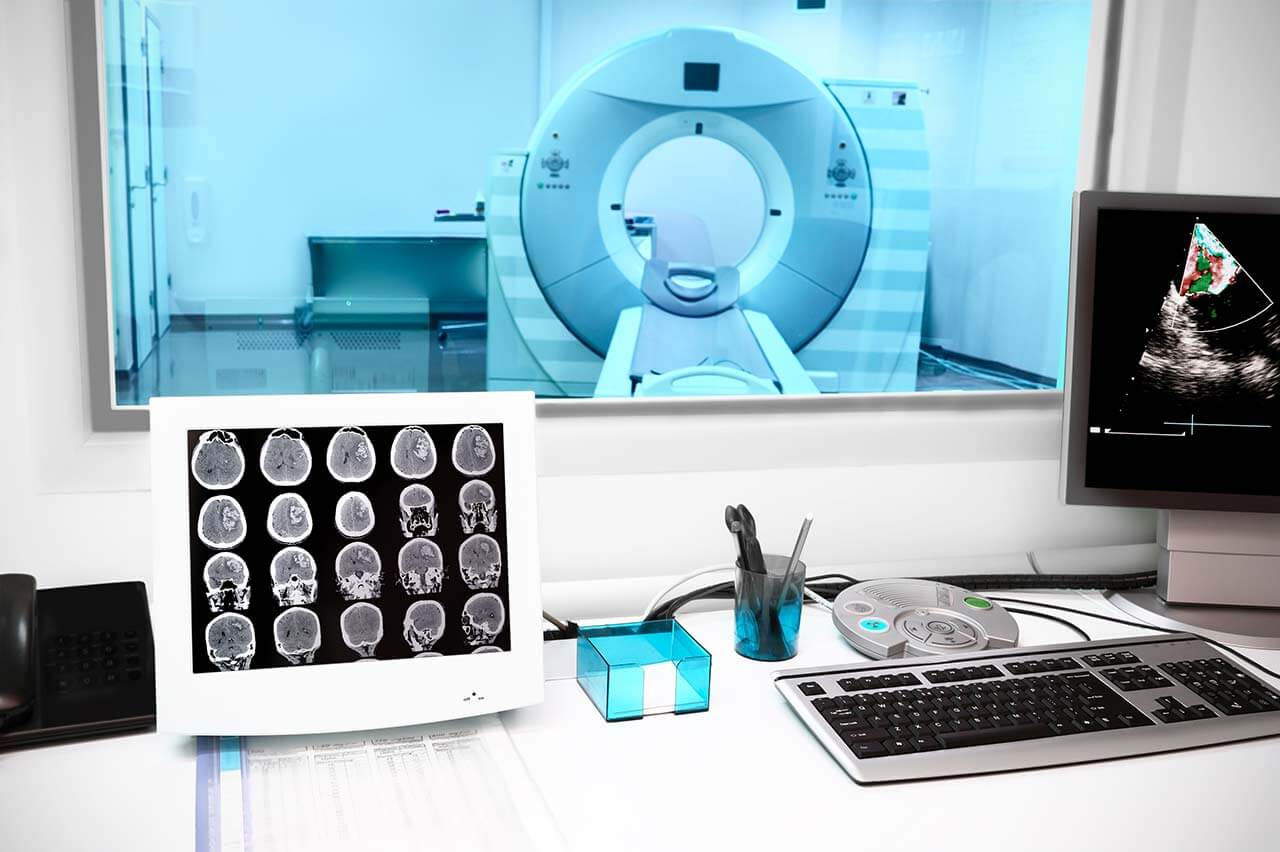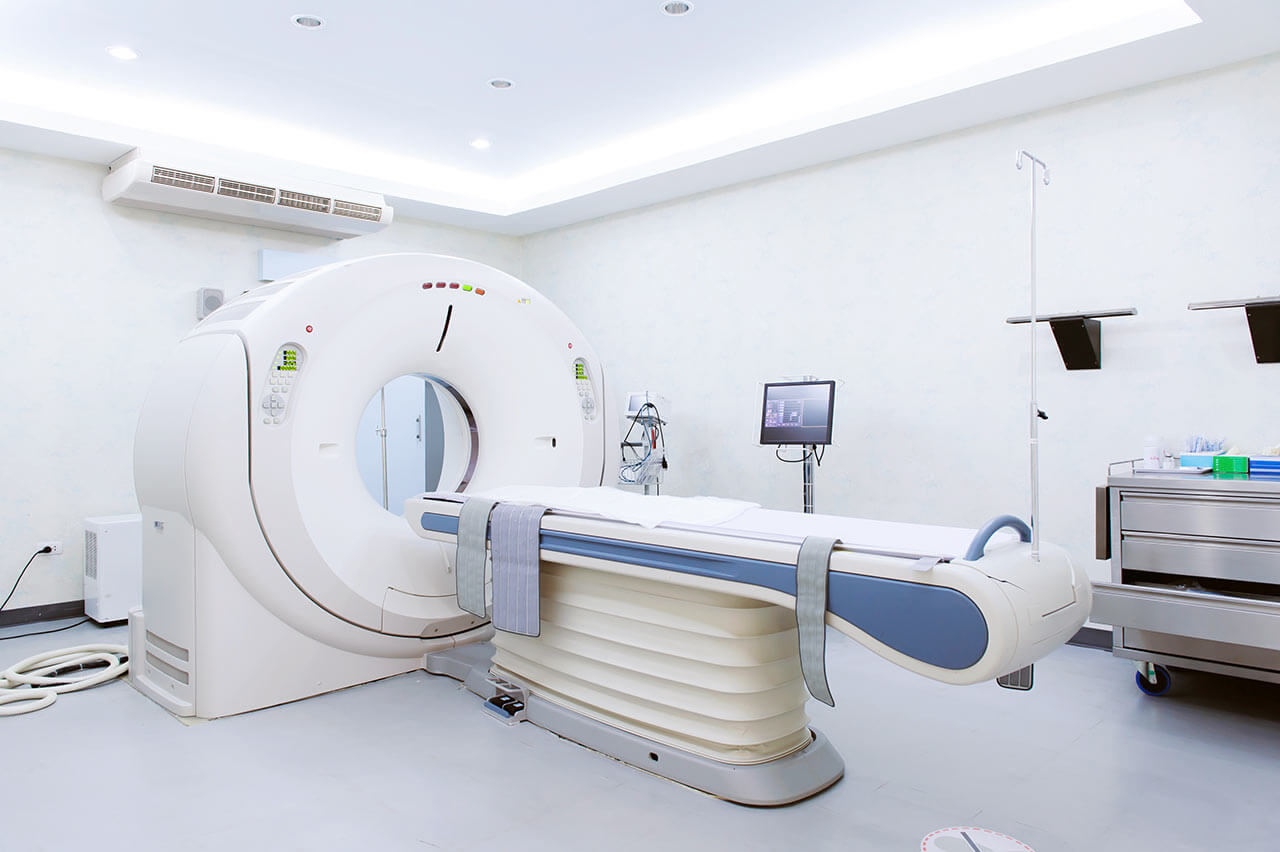
The program includes:
- Initial presentation in the clinic
- clinical history taking
- physical examination
- dermatological skin examination
- laboratory tests:
- complete blood count
- biochemical analysis of blood
- tumor markers
- inflammation indicators
- indicators blood coagulation
- preparation according to preoperative standard
- surgical tumor resection
- histological examination
- cost of required medications
- nursing staff services
- explanation of future recommendations
Required documents
- Medical records
- Biopsy results (if available)
Service
You may also book:
 BookingHealth Price from:
BookingHealth Price from:
About the department
The Department of Dermatology at the University Hospital Hamburg-Eppendorf provides highly accurate diagnostics and comprehensive treatment of the entire spectrum of skin diseases and its appendages. The central place in clinical practice is given to the treatment of skin tumors with a special emphasis on melanomas and lymphomas, inflammatory skin diseases, skin lesions due to autoimmune diseases, allergic manifestations on the skin, chronic non-healing wounds, and venous pathologies. The department's physicians have unique expertise in the treatment of rare dermatologic diseases. The medical facility also offers aesthetic dermatology services, the most popular of which is the treatment of wrinkles with Botox, hyaluronic acid, and filler injections. Most therapeutic and surgical procedures are performed on an outpatient basis without hospitalization. The healthcare facility performs about 2,500 surgical procedures each year. The department's specialists diagnose and treat more than 30,000 patients annually, 23,000 of whom receive outpatient medical care. Such high rates of seeking medical attention here indicate excellent quality of services and high competence of doctors.The Head Physician of the department is Prof. Dr. med. Stefan Schneider.
The department's physicians focus on the prevention, diagnosis, and treatment of skin tumors. Patients with such a diagnosis are treated in a specialized center certified by the German Cancer Society (DKG). Dermatologists, oncologists, radiation therapists, radiologists, plastic surgeons, and other specialists work hand in hand here. The center has an advanced operating room, phototherapy facilities, and an inhouse laboratory, allowing for comprehensive medical care using the latest treatments. The center has an excellent reputation in the national and international medical arena and annually treats more than 1,000 patients, many of whom come from abroad. The department successfully treats melanoma, including rare forms, basal cell carcinoma, squamous cell carcinoma, cutaneous lymphoma, and Merkel cell carcinoma. Treatment is based on an individual approach to each patient and their clinical case, as well as the use of the latest and most sparing therapeutic methods in accordance with current clinical protocols. The treatment regimen is developed individually for each patient in weekly interdisciplinary tumor boards, after reviewing the patient's medical history and carefully studying the diagnostic data. The first-line treatment is surgical resection of the malignant skin tumor. In most cases, the operation is supplemented by conservative methods such as chemotherapy, radiation therapy, targeted therapy, or immunotherapy. After the completion of the basic course of treatment, the patient is recommended to undergo regular follow-up dermatological examinations to prevent recurrence.
The department's team of dermatologists has extensive experience in the treatment of inflammatory skin diseases, the most common of which are psoriasis, eczema, and acne inversa. Treatment of inflammatory skin lesions is a rather complex clinical task, so the doctors of the department carefully develop a treatment plan for each patient based on diagnostic data and the severity of the inflammatory process. As a rule, the treatment combines local therapy with ointments, creams, and lotions, treatment with pills, phototherapy, diet therapy, and other methods. To eliminate aesthetic defects on the face caused by acne, modern hardware cleansing techniques, peelings, and other cosmetic procedures are recommended.
The department also regularly treats patients with allergic diseases. The medical facility specializes in the treatment of allergic rhinoconjunctivitis, allergic bronchial asthma, contact allergies, insect sting allergies, drug allergies, food intolerance, neurodermatitis, occupational dermatoses, and anaphylactic shock. Before starting treatment, the physicians of the department study the patient's medical history and perform tests to determine the cause of the allergic reaction. The diagnostic capabilities of the department include prick tests, stretch tests, epicutaneous and intracutaneous tests, photopatch tests, laboratory tests to determine immunoglobulin E (IgE), tryptase, and C1-esterase inhibitor levels, and provocation tests. The optimal course of treatment for the patient is prescribed based on the results of the preliminary diagnosis, the most important part of which in most cases is allergen-specific immunotherapy (ASIT).
The main clinical activities of the department are as follows:
- Diagnostics and treatment of skin cancer
- Diagnostics and treatment of melanoma
- Diagnostics and treatment of squamous cell skin cancer, basal cell skin cancer, and their precursors
- Diagnosis and treatment of cutaneous lymphomas: cutaneous T-cell lymphoma and cutaneous B-cell lymphoma
- Diagnostics and treatment of Merkel cell carcinoma
- Diagnostics and treatment of rare skin tumors: Kaposi's sarcoma, angiosarcoma, and dermatofibrosarcoma protuberans
- Diagnostics and treatment of inflammatory skin diseases
- Diagnostics and treatment of psoriasis
- Diagnostics and treatment of eczema
- Diagnostics and treatment of acne
- Diagnostics and treatment of allergic diseases
- Diagnostics and treatment of allergic rhinoconjunctivitis
- Diagnostics and treatment of allergic bronchial asthma
- Diagnostics and treatment of contact allergies
- Diagnostics and treatment of insect sting allergies
- Diagnostics and treatment of drug allergies
- Diagnostics and treatment of food intolerance
- Diagnostics and treatment of neurodermatitis
- Diagnostics and treatment of occupational dermatoses
- Diagnostics and treatment of anaphylactic shock
- Diagnostics and treatment of chronic non-healing wounds
- Diagnostics and treatment of venous diseases
- Diagnostics and treatment of varicose veins
- Diagnostics and treatment of superficial vein thrombosis
- Diagnostics and treatment of deep vein thrombosis
- Diagnostics and treatment of venereal diseases
- Diagnostics and treatment of other diseases
The range of medical services provided by the department is as follows:
- Conservative treatment
- Drug treatment with ointments, gels, lotions, and tableted drugs
- Phototherapy
- Chemotherapy, radiation therapy, targeted therapy, and immunotherapy for skin cancer
- Allergen-specific immunotherapy for allergies
- Aesthetic dermatological procedures
- Botox, hyaluronic acid, and filler injections for wrinkle treatment
- Botox injections for hyperhidrosis treatment
- Scar revision
- Surgical treatment
- Surgery for the resection of benign and malignant skin tumors
- Surgery for the removal of sentinel lymph nodes
- Surgery for hyperhidrosis
- Surgery for acne inversa
- Surgery for pilonidal sinus
- Surgery for rhinophyma
- Surgery for genital warts
- Surgery for ingrown nails
- Surgery for actinic cheilitis
- Surgery for trophic ulcers of the lower extremities
- FAST procedure, stripping, and foam sclerotherapy for trunk varicose veins
- Mini-phlebectomy, classical sclerotherapy, and foam sclerotherapy for varicose veins
- Other therapeutic options
Curriculum vitae
Higher Education and Postgraduate Training
- 11.1987 - 05.1994 Medical studies, Faculty of Medicine, Julius Maximilian University of Wuerzburg.
- 11.1989 - 02.1994 Thesis defense in Physiology, Julius Maximilian University of Wuerzburg.
- 05.1994 Admission to practice medicine, Julius Maximilian University of Wuerzburg.
- 07.1994 Doctorate.
- 07.2001 Habilitation and Venia legendi in Physiology, Westphalian Wilhelms University of Muenster.
Professional Career
- 08.1994 - 07.1996 Fellowship from the German Research Foundation (DFG), Department of Physiology, Julius Maximilian University of Wuerzburg, and Department of Surgery and Cell Physiology, Yale University, USA.
- 08.1996 - 09.1997 Internship, Department of Internal Medicine, University Hospital Wuerzburg.
- 08.1997 - 09.1997 Fellowship (Jubilee Award from Julius Maximilian University of Wuerzburg), Department of Cellular and Molecular Physiology, Yale University, USA.
- 10.1997 - 06.2002 Research Associate, Department of Physiology, Westphalian Wilhelms University of Muenster.
- 11.1997 Admission to medical practice.
- Since 11.2000 Head of the Working Group on Cellular Dynamics.
- 03.2002 Physician, Department of Dermatology, University Hospital Muenster.
- 08.2002 Specialization in Physiology.
- 04.2006 Specialization in Dermatology, Venereology, and Allergology.
- 06.2006 Senior Scientific Director, Department of Dermatology, Westphalian Wilhelms University of Muenster.
- 06.2006 3rd place in the list of W3 Professors in Physiology, University of Ulm.
- 06.2007 Extraordinary Professorship.
- 09.2008 Specialization in Phlebology.
- 12.2008 W3 Professor, University of Mannheim.
- 11.2011 Good Clinical Practice (GCP) Certificate.
- 12.2008 - 09.2016 Head of the Section of Experimental Dermatology and Deputy Head of the Department of Dermatology, Venereology and Allergology.
- Since 10.2016 Head Physician, Department of Dermatology, University Hospital Hamburg-Eppendorf.
Prizes, Awards, and Honors
- 05.1995 Franconian Scientific Prize in Human Medicine.
- 03.1999 Bennigsen Foerder Prize.
- 04.2005 Oskar Gans Prize in Dermatology.
- 10.2007 Prize for "Innovative Medical Technologies" of the Federal Ministry of Education and Research (BMBF).
Photo of the doctor: (c) Universitätsklinikum Hamburg-Eppendorf (UKE)
About hospital
According to the Focus magazine, the University Hospital Hamburg-Eppendorf is one of the top ten hospitals in Germany!
Since its foundation in 1889, the hospital has taken a leading position in the European medical arena, which it still holds today. A highly competent medical team of more than 15,300 employees takes care of the health of patients. Approximately 2,900 of them are physicians and researchers, and more than 3,400 work as nurses and therapists. The hospital has 1,738 beds for inpatient treatment, and many diagnostic and therapeutic services are provided on an outpatient basis. A solid foundation for successful clinical practice in the medical complex is formed by a combination of research achievements with state-of-the-art equipment and the highest professionalism of doctors. In addition, the hospital has a modern and extremely comfortable infrastructure. The most important value for every employee of the University Hospital Hamburg-Eppendorf is the health and well-being of every patient.
The medical facility was the first university hospital in Europe to implement an electronic system for storing patient medical reports. As a result, all diagnostic and treatment protocols are stored electronically. In 2011, the hospital was certified as the first fully digital hospital in Europe.
The hospital represents all areas of modern medicine. The doctors of the healthcare facility have a wealth of theoretical knowledge and vast clinical experience, which allows them to easily cope with the treatment of both common and extremely rare, complex clinical cases. About 550,000 patients are treated here each year, over 450,000 of whom receive outpatient medical care.
An important part of the work of the University Hospital Hamburg-Eppendorf is research activities aimed at developing innovative diagnostic and treatment methods. The main areas of research of the hospital include neurobiology, oncology, cardiovascular research, and research on infectious and inflammatory diseases. Special attention is also given to research in molecular imaging and skeletal biology.
The hospital is distinguished by its first-class level of medical care, which is confirmed by numerous quality certificates of European and international standards: DIN EN IS0 9001 certificate, certificates of the German Cancer Society (DKG) in the treatment of breast cancer, colon cancer, gynecological cancer, prostate cancer, and other oncological diseases, certificate of the German Cardiac Society (DGK) in the treatment of acute coronary syndrome, certificate of the German Spine Society (DWG), and others.
Photo: (с) depositphotos
Accommodation in hospital
Patients rooms
The patients of the University Hospital Hamburg-Eppendorf stay in comfortable single and double bright rooms with a modern design. Each patient room has an ensuite bathroom with a shower and a toilet. The standard patient room furnishings include an automatically adjustable bed with an orthopedic mattress, a bedside table, a wardrobe, a table and chairs for receiving visitors, a telephone, a radio, and a TV. Wi-Fi access is available in patient rooms and throughout the hospital.
If desired, patients can stay in single enhanced-comfort rooms. These rooms are more spacious and are equipped with upholstered furniture, a safe, and a mini-fridge.
Meals and Menus
The hospital offers three meals a day: breakfast, lunch, and dinner. Breakfast and dinner are served in the form of buffets, and for lunch you can choose from several set menus – in total, more than 20 dishes are served for lunch, including vegetarian ones.
If, for some reason, you cannot eat all of the foods, you will be offered an individual menu. Please inform the medical staff about your dietary preferences prior to the treatment.
Further details
Standard rooms include:
![]() Toilet
Toilet
![]() Shower
Shower
![]() Wi-Fi
Wi-Fi
![]() TV
TV
Religion
Religious services are available upon request.
Accompanying person
During the inpatient program, an accompanying person may stay with you in a patient room or hotel of your choice.
Hospital accommodation
During the outpatient program, you may stay in a hotel at the hospital.
Hotel
During the outpatient program, you may stay in a hotel of your choice. Managers will help you choose the most suitable options.
The hospital offers a full range of laboratory tests (general, hormonal, tests for infections, antibodies, tumor markers, etc.), genetic tests, various modifications of ultrasound scans, CT scans, MRI and PET / CT, angiography, myelography, biopsy and other examinations. Treatment with medications, endoscopic and robotic operations, stereotaxic interventions is carried out here, modern types of radiation therapy are also used. The hospital offers patients all the necessary therapeutic techniques.
- Coiling and clipping of aneurysms of different localizations
- Transjugular intrahepatic portosystemic shunting in patients with portal hypertension
- Minimally invasive surgeries (da Vinci)
- Removal and reconstruction of mammary glands
- Hyperthermic intraperitoneal chemotherapy (HIPEC)
These are arteriovenous malformations and angiomas, vascular aneurysms, pathologies of the mammary glands, pelvic organ prolapse, urinary incontinence, malignant tumors of various localizations (area of special attention is treatment of intestinal cancer), pathologies of liver and pancreas, cataracts and rare ophthalmic pathologies (aphakia, aniridia ), infertility and other diseases.
- Interventional neuroradiology
- Mammology
- Oncology
- Gastroenterology
- Surgery
Over 2,900 highly qualified physicians and researchers work at the hospital.





